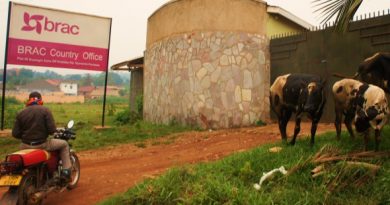South Sudan: Attempting to Feed Your Family could Get You Hurt
By Alia Hubey
Staff Writer
South Sudan is entering its 6th year of conflict and its civilians are facing the brutal consequences of ethnic unrest, reports the New York Times. In the past 10 days, at least 125 women were raped on their way to a food distribution site. The actual number of cases are estimated to be much higher as many incidents are severely underreported. Victims are targeted based on their ethnic and perceived political identities.
These rapes face are indiscriminate, from 5-year-old to 65-year-old women; even those who are pregnant and disabled are not spared from such war tactics. The assailants are armed men in military uniforms as well as militiamen in civilian clothing.
In a New York Times report, a Doctors Without Borders representative stated that military men attacked these women, beat them, robbed them, and even destroyed their food ration cards.
Amnesty International reports that South Sudan is experiencing the world’s fastest-growing refugee crisis. It is the 3rd largest in the world, after Syria and Afghanistan. Over 4 million people have been displaced and more than 1.8 million of those have fled the country. Over 200,000 civilians are living in United Nations peacekeeping protection camps. Many are fleeing because they fear sexual violence and are experiencing shortages of food.
After gaining its independence from Sudan in 2011, South Sudan aspired for a peaceful and stable statehood. However, this dream was crushed in December of 2013 when President Salva Kiir accused his former Vice President, Riek Machar of attempting a coup d’état. This plunged the country into political and ethnic violence as supporters of President Kiir, known as Dinkas, clashed with those loyal to Riek Machar, the Nuers.
The two conflicting groups decided to sign a cease-fire peace agreement in 2015, but the pact was quickly violated, reports BBC. Then, under international pressure, the two sides signed a new peace deal in May 2017, hosted by Ethiopia.
BBC News states that this new deal intended to ensure a permanent ceasefire. The deal was also meant to form a transition government, help draft a new constitution, and assist in political elections.
Since the start of the conflict, thousands of civilian men, women, and children have been subjected to brutal forms of sexual violence like gang rape, sexual slavery, sexual mutilation, and sexual humiliation, according to the United Nations.
According to an official report released by the United Nations, many civilians are often raped in front of relatives. This humiliates victims, their families, and entire communities.
Nikki Haley, the United States Ambassador to the United Nations, traveled to South Sudan last year to hear firsthand accounts of the violence. She recounts an exchange between her and a victim in an article from The Washington Post; “In one horrific case recounted to me, two brothers were forced to watch as fighters gang-raped their mother. Afterward, the fighters made the brothers shoot her. They permitted the brothers to stop shooting only after their mother had died — killed by her own sons.’”
Due to the increased tensions in city centers between the two opposing ethnopolitical groups, the United Nations created a peacekeeping mission in South Sudan and currently has 7,500 blue helmet troops on the ground. These forces have created safety camps to which many victims of violence flee. UN police officials prevent any perpetrators from entering the area.
Both the government and opposition forces have deliberately restricted civilian access to food and have limited humanitarian organizations’ food distribution processes.
Currently, farmers are displaced and unable to return home because government forces or militiamen have deliberately incinerated their farms. Many women within the UN camps leave to buy food for their children, but risk rape and murder in doing so.
Such women are targeted by the military because they are believed to be supporters of the ethnic Nuers. Many rebels leave their wives behind to fight in Nuer militia groups, and the women and children are left alone in these camps.




